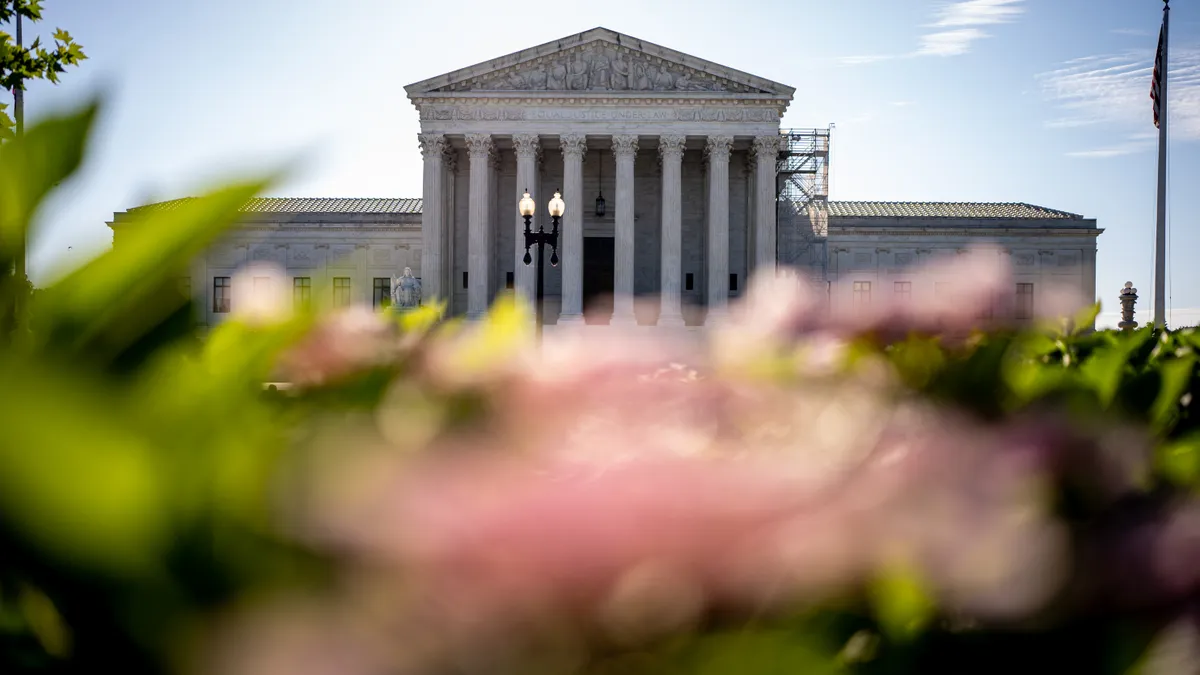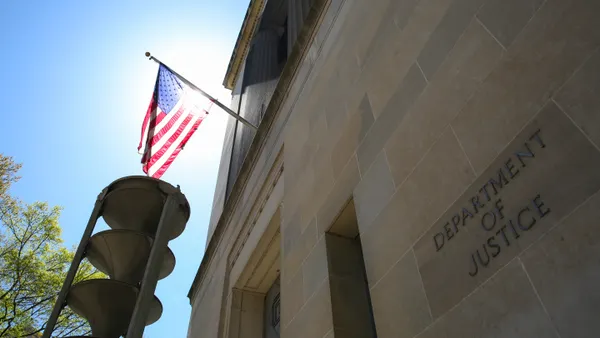Dive Brief:
- The U.S. Supreme Court overturned the Chevron doctrine on Friday in Loper Bright Enterprises et. al. v. Raimondo, Secretary of Commerce, et. al., in a blow to federal agencies.
- In a 6-3 vote, the high court overruled a 1984 decision in Chevron v. Natural Resources Defense Council that gave way to the doctrine, which required federal courts to give deference to agencies’ reasonable interpretation of ambiguous statutes.
- “The Administrative Procedure Act requires courts to exercise their independent judgment in deciding whether an agency has acted within its statutory authority, and courts may not defer to an agency interpretation of the law simply because a statute is ambiguous,” the high court ruled.
Dive Insight:
The decision to nix Chevron could have massive implications for law enforcement by regulatory entities such as the U.S. Department of Labor, the U.S. Equal Employment Opportunity Commission, the National Labor Relations Board and the Office for Federal Contract Compliance Programs.
The decision could have far-reaching effects on apartment owners, managers and developers.
“So many different sectors touch multifamily,” said lawyer Lynn Calkins, deputy section leader, litigation for Tampa, Florida-based law firm Holland & Knight LLP. “You have privacy laws and data laws and telecommunication laws and, of course, fair housing.”
The federal agencies that regulate those sectors may have their authority weakened going forward. “There's a lot of opportunity for those sectors to revisit business decisions that they've made in the past,” she said.
For instance, Calkins sees an opportunity for the industry to re-examine issues like HUD’s safe harbors in design and construction.
“[Apartment managers and developers] have made decisions along the way based on HUD's interpretation of the Fair Housing Act in particular,” she said. “And they may want to relook at whether those decisions have opportunities available for being revisited.”
Looking ahead
Federal agencies will “likely face more challenges to their rules and regulations” and “the agencies might publish fewer and more modest regulations going forward,” labor and employment firm Littler explained in a blog post for the firm earlier this year.
In a dissenting opinion, Justice Elena Kagan said the Chevron decision has “served as a cornerstone of administrative law” for 40 years.
“Congress knows that it does not — in fact cannot — write perfectly complete regulatory statutes. It knows that those statutes will inevitably contain ambiguities that some other actor will have to resolve, and gaps that some other actor will have to fill. And it would usually prefer that actor to be the responsible agency, not a court,” Kagan wrote. “A rule of judicial humility gives way to a rule of judicial hubris. In recent years, this Court has too often taken for itself decision-making authority Congress assigned to agencies.”









